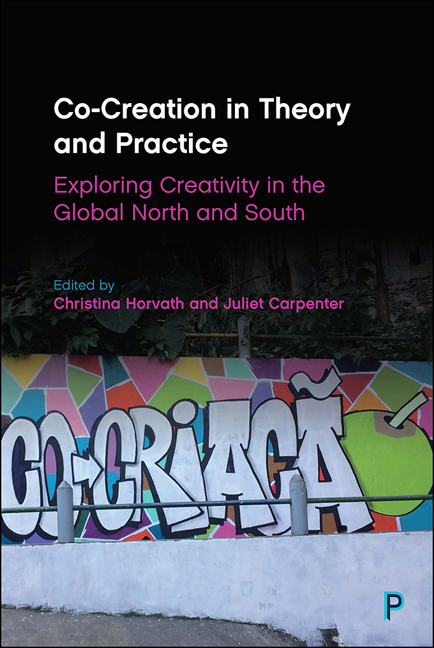15 - Working the Hyphens of Artist-Academic-Stakeholder in Co-Creation: a Hopeful Rendering of a Community Organisation and an Organic Intellectual
Published online by Cambridge University Press: 18 March 2021
Summary
Introduction
Perhaps it is easy to look at a city like Rio de Janeiro and despair. The urban inequalities are nowhere more noticeable than in the city's favelas, where approximately one fifth of the local population lives. Brazil's favelas, like other areas of apparent temporariness and marginality around the world, are fast becoming dominant modes of current urbanity (Davis, 2006). Frenzel (2016) proposed that two discourses commonly shape popular understandings of the favela. The first is a narrative of despair. This narrative recognises that those who live in favelas (the favelados) are situated at the intersection of multiple power formations and inequalities. They experience the stigmatising effects of mainstream media and policy through drug and gang activity, low income levels, unsanitary conditions, lack of education, police brutality, spatial stigmatisation, gender-and sex-based violence, employment and education discrimination, and racism.
The second narrative – which is less prominent – is a narrative of hope. In this narrative, the favela is more of a natural constituent of urbanisation; its spaces are neighbourhoods, sites of the vibrancy of urban life, collective agency, self-reliance, creativity, and entrepreneurialism. The winning of rights and legal positions or increased access to public services are examples of the progress of this narrative. Rio de Janeiro is replete with narratives of both despair and hope (Perlman, 2009). It is on a narrative of hope, and in particular the creative activism in one favela, Santa Marta, that this chapter focuses. Co-Creation is capable of responding to urban stigma through creativity, collectivity, and activism, and thus also capable of generating the narratives of hope, which this chapter develops.
From 2016 to 2019, a team of more than 30 researchers and activists from the EU, Mexico, and Brazil worked together to deliver Co-Creation projects in five cities around the world. Co-Creation is both a methodology and a knowledge project that brings together researchers, artists, and stakeholders in order to produce shared knowledge that can challenge, resist, or modify urban stigmatisation (see Chapter 1). Rio de Janeiro was one case among the five. In 2018, more than 20 researchers from the EU and Mexico, NGO members from the EU, and several researchers from Rio de Janeiro, collaborated with local stakeholders in Santa Marta, a favela in Rio de Janeiro's Zona Sul (South Zone).
- Type
- Chapter
- Information
- Co-Creation in Theory and PracticeExploring Creativity in the Global North and South, pp. 237 - 252Publisher: Bristol University PressPrint publication year: 2020



